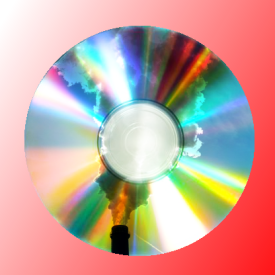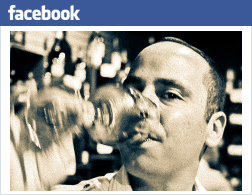Reduce Your Music Footprint
or... What you can do to save popular music
The world of music is in crisis! For the first time in history, man's creation of music far exceeds his potential consumption. Modern music saturates us in mediocrity and we are losing something precious.
You can make a difference. You can reduce your music footprint.
 Music libraries are measured in Gigabytes and in years of playing time. Consumers dutifully try to keep up; our lives suddenly demand a soundtrack and our iPods are there to provide. Our boxed sets and P2P, MySpace and music servers, web radio, XM, American Idol. Dammit we are trying….
Music libraries are measured in Gigabytes and in years of playing time. Consumers dutifully try to keep up; our lives suddenly demand a soundtrack and our iPods are there to provide. Our boxed sets and P2P, MySpace and music servers, web radio, XM, American Idol. Dammit we are trying….
What is it that we are so eagerly consuming? What is modern music? What has Dubussy evolved to?
Bubblegum and ear candy, a sonic visceral porn is what we have today. Designed to satisfy our cultural least common denominator. Professional wrestling for the ears. We are given beauty in substitute of talent. Marketability in substitute of soul.
No genre has been spared. Like a cultural virus, a meme gone rotten, the bubblegum pandemic is out of control. Britney and Justin and Beyonce and Akon, easy to pick on of course. But from the first infected popstars of the 70's the virus has spread. The Michael Bublés and Candy Dulfers of Jazz, the Keith Urbans of country. Bebel Gilberto and her Bossa Nova beats better damned well be sexy. But even classical music dear God, with Vanessa Mae and Opera's Anna Netrebko fit for MTV.
Oh sure, there have always been sex symbols in music. Doris, Patsy, Julie, Elvis and Paul… But they were performers, singers and artist first and foremost. The stars of then had music in their blood, born to perform. Today's stars are icons, off the shelf free agents processed like cattle into music product. Innocent Britney, choir girl with high hopes; churned through the machine and processed into a collapsing star.
Music litter has polluted cyber-space, shelf-space and mind-space. It does not have to be this way.
Please act now to slow this global catastrophe!
Let's look at a few significant highlights of the rise of modern music:
- 1911- Irving Berlin begins a career of writing timeless classics. Modern Jazz is being born
- 1923 – Bessie Smith is bringing the power of the Blues to the masses
- 1931 – Bing Crosby seduces the world with the male voice
- 1934 – Cole Porter writes songs that tug at the emotions of every man and woman alike
- 1940 – Woodie Guthry is bringing to life Folk and puts on record the woes of the people
- 1943 – Frank Sinatra, the first popstar has The Voice, melting the hearts of the masses
- 1950 – Hank Williams, the Godfather of Country music, is teaching the world of sorrow
- 1956 – Elvis Presley, The King, is ushering in Rock 'n' Roll and we never look back
- 1959 – John Coltrane is reinventing Jazz, haunting the soul of the cities
- 1960 – Ray Charles marries Rhythm with Blues and hit the world with gut emotion
- 1961 – Joan Baez is inspiring college students and inspiring a movement
- 1963 – The Beach Boys sing of pure joy and youth, keeping the world forever young
- 1965 – Jim Morrison brings poetry to Rock 'n' Roll
- 1969 – Johnny Cash gives a moment of dignity to those behind bars
Within 70 years, modern music rises and peaks. The 30 years that follow see the decline. The 70's are the transition time, in with Led Zeppelin and Gallows Pole, out with The Knack and My Sharona. The 80's bring the video and the hair, Madonna and New Wave; a few peaks and a lot of valleys. The 90's introduce the formula music, flannel and Grunge, boy-bands and tweens. With the millennium comes mainstream R&B cum Hip Hop featuring J‑Bling. MySpace, YouTube and GarageBand. Sign up and now you too can be a reality Star!
What can you do to make a difference?
Musicians:
If you are in the music business today, please reduce your music footprint immediately. The most direct approach many footprint conscious musicians take is to stop creating music all together. Cold turkey is the best approach. Really, please read on. It is not suggested that you stop performing music, but rather that you stop recording music. Equally important is that the music you do perform be currently existing music. We must stop the avalanche of creation to give society time to catch up on what already exists.
As a musician, you may feel a hunger and need to create. Channel these feelings into productive music related activities such as education. Perform music and teach your audience what they're listing to. Explain where the song came from and why it is important. Be an ambassador of your chosen genre.
Consumers:
If you are a consumer of music, your footprint is measured by the music you own but don't listen to and the songs you hear but don't know the lyrics to. A two step music footprint reduction program is recommended. The first and easiest step is to stop buying (aka 'downloading') music. This is only a temporary measure to allow you to successfully complete the next step.
Step two is to recycle much of your existing music collection. The decade of recording serves as a rough formula to help you decide which music to recycle. For music recorded in the 20's it is suggested that 20% be recycled. 70% of the music from the 70's would be recycled and so on. 100% should be recycled for music recorded in the 2000's. Of the percentage to be recycled, it is the consumer's choice as to which songs and albums be selected. But please consider the significance, emotional impact and statements made by the music; if you cannot identify any of the above in a given song, it should be recycled.
Music which was recorded prior to 1988 and is held on a physical medium should be recycled at your local record store. The music can be exchanged for other more valuable music which you do not already own. Music held on computer hard disk can be recycled conveniently in the Recycle Bin. Music recorded after 1988 (inclusive) and held on a physical medium should be recycled into ash, smoke and heat.
Please do your part and reduce your music footprint!



 February 8, 2011
February 8, 2011 
















.jpg&w=50&h=50&zc=1&q=90)
